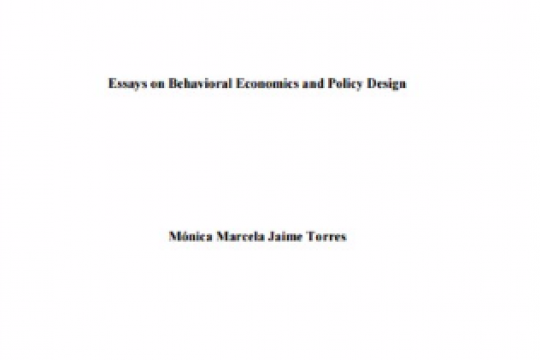This thesis consists of three self-contained chapters on issues related to spillover effects of behavioral and policy interventions aimed at reducing negative incentives provided by consumption and production subsidies, and discusses the implications for environmental policy design. The first two chapters investigate spillover effects of a behavioral intervention aimed at incentivizing residential water savings in Colombia. Because there is limited scope for price reform and water prices are highly subsidized, the intervention relies on the use of non-monetary incentives (i.e., provision of social information). While the first chapter focuses on spillover effects due to social interactions within a domain, the second chapter identifies behavioral spillover across domains that are potentially driven by underlying personal motivations. The third paper focuses on monetary incentives, and investigates policy spillovers resulting from the interaction of subsidies in EU agriculture, before and after the introduction of the 2003 reform of the Common Agricultural Policy (CAP). The subsidies under study correspond to the main pillars of the CAP, which account for the monetary support devoted to agricultural and agri-environmental policy in the EU. Although there is consensus regarding the economic importance of having both subsidies in place, there is a concern that their interplay may undercut the adoption of sustainable practices, affecting environmental goals.
The findings contribute to the discussion on the importance of accounting for unintended effects of policies, as inputs not only for policy evaluation but also for the design of more cost-efficient interventions.

